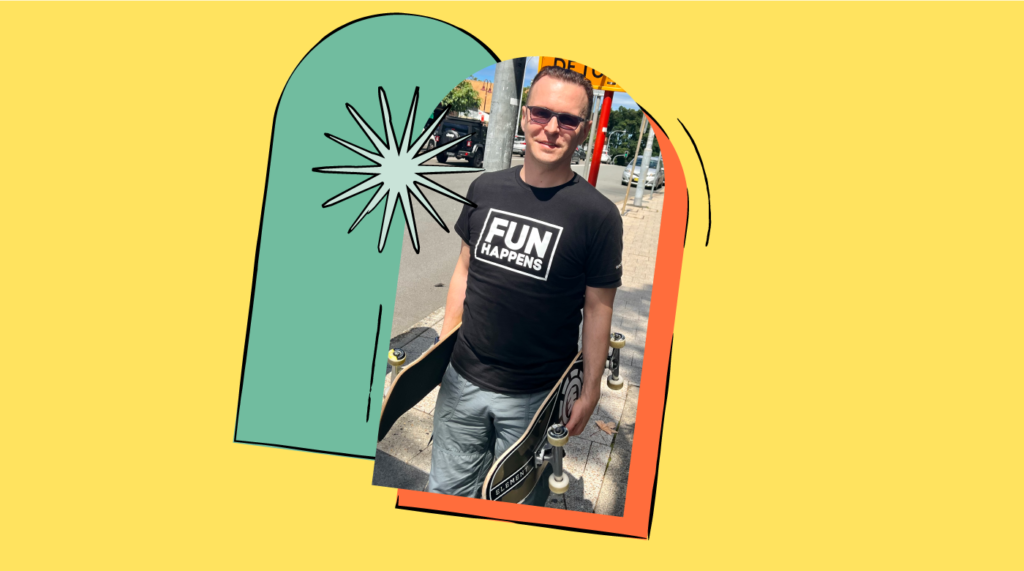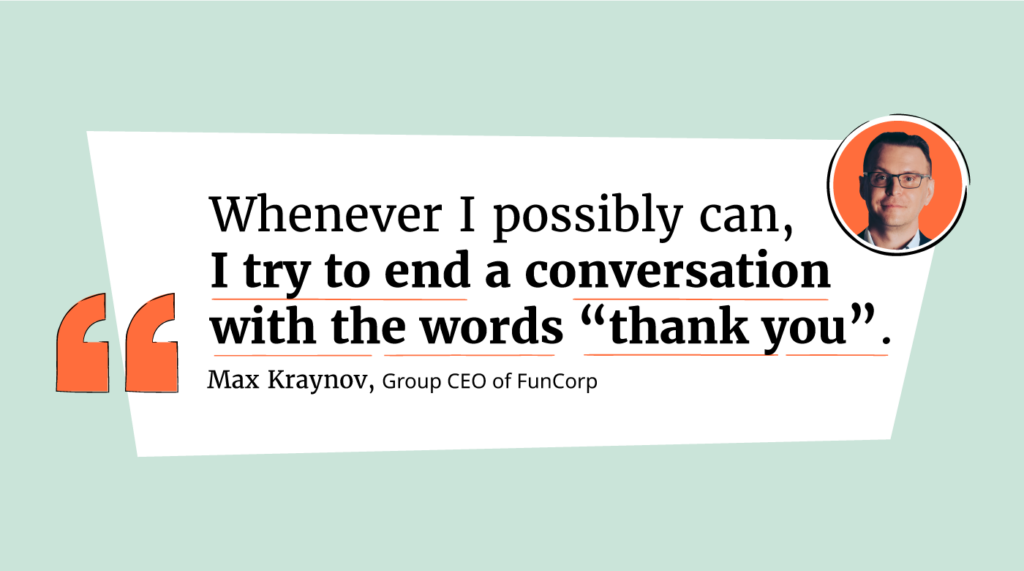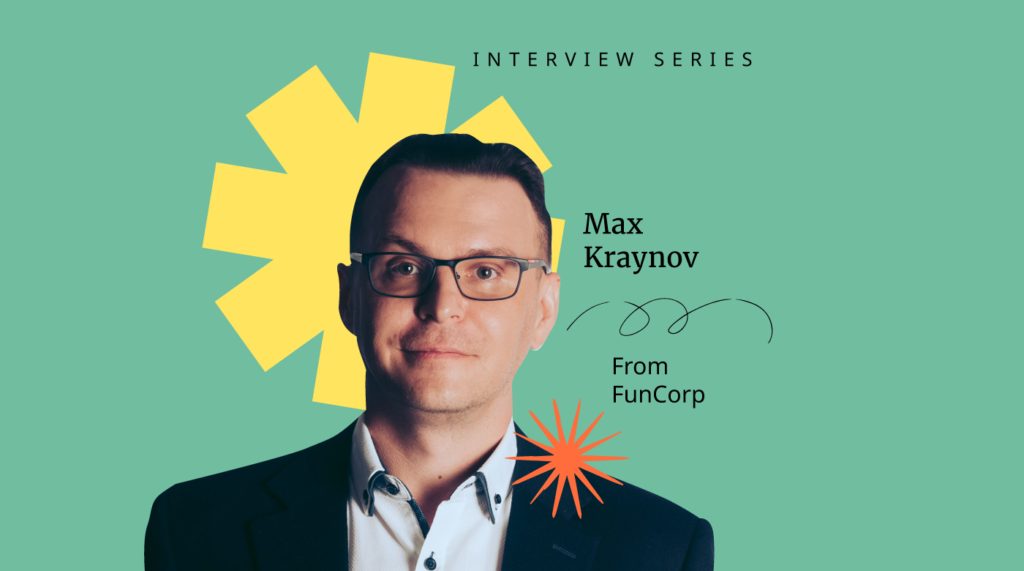We’re passionate about the world of work, and how we can make it better. To help satisfy our curiosity, we’ve launched an interview series where we pick the brains of experienced leaders, business owners, managers, and individual contributors to get their thoughts on how we can collectively build better workplaces.
We’d love to get to know you a bit better, tell us a bit about your backstory.
I got my first computer at the age of 13 and immediately jumped headfirst into programming. Before I turned 21, I had already worked on my first mobile Forex trading service and several police-related systems, which helped with identifying bodies and tracking down stolen cars.

I have been working in the mobile space since 1999, where I had (hopefully) helped shape the downloadable mobile content industry with a one-stop-shop solution built by Unwiredtec—a company I founded. After selling my startup I became more interested in the "big time" stuff—finance, investments, growth, human capital, and everything in between, all with a focus on helping companies build shareholder value.
After spending the last decade building Aviasales—a flight search service, which became the third-largest in the world—I joined FunCorp as Group CEO. Founded in 2004, FunCorp is a leading developer of entertainment tech products and services with global headquarters in Limassol, Cyprus, and U.S. offices in New York and Texas. Our products include iFunny, an app for meme lovers with over 70 million downloads in the U.S., and Yepp—an app that enables meme creators to monetize their content.
If we were to ask a friend to describe your personality to us, what would they say?
I am a mix of introvert and extrovert—I enjoy human interaction, but require for my internal batteries to be recharged every now and then. I never raise my voice and always communicate with respect. I’m enthusiastic and keen to share my expertise and give advice—but only when I am asked (I’m not a fan of unsolicited advice).
Thinking back to your career journey, what’s an interesting story that stands out?
I’ve learned about persistence and the numbers game early in my career. Back in 2001 when looking to relocate to the U.S. for work, I responded to approximately 300 job ads. From this, I got just two interviews, and one offer (which I ended up accepting).
Later on in my career, I had another experience that helped me remain humble. Several years ago I was invited to speak on a panel about travel industry trends. However, the event was so poorly organized that we had more people on stage (5 speakers) than in the audience (4 spectators!). Nevertheless, we still enjoyed our discussion and the experience reminded me to never take myself too seriously.
What’s the most impactful lesson you've learned over your career thus far?
I have realized the importance of making connections and staying in touch with interesting people throughout my professional and personal journey. Human capital is the greatest capital of all to tap into, and I have marveled and appreciated the power of my global professional network. Over the past 20 years, I have come across thousands of people, many of whom are now among my LinkedIn contacts. Whenever I need to reach out to someone, they are normally just one connection away, which is wonderful to see.
Thanks for giving us some insight into who you are! Let’s jump into things. When you hear the phrase “build a better world of work”, what comes to mind?
To me, building a better world of work means finding a consensus between what employees and employers want by providing an environment that works for people with different backgrounds, ages, and cultural values. This is easier said than done!
- Employees want a fulfilling work environment where they can have opportunities for growth and development, be treated with respect, have some level of job security, and maintain a healthy work-life balance, without having to sacrifice precious personal and family time.
- Employers want employees to be working towards favorable business outcomes. This includes practicing self-discipline and encouraging a culture of achievement, coupled with healthy interpersonal relationships among team members, and promoting mental health.
There are cultural and generational reasons why there’s no “one fits all” solution for a perfect working environment, even within the same industry or geographic area.
It is the job of top management to engage employees in order to find a stable equilibrium between differing employer and employee objectives.
For you, what’s the main blocker you see as standing in the way of building a better world of work?
It’s easy to blame outdated management models and their shortcomings, but this approach is too simplistic. In my experience, the hardest part is empowering staff to make decisions that don’t require managerial approval or extended supervision. This is easier said than done, and it won't work for everyone (nor is this necessary in all cases), but simply involving the people who are really invested—those who truly care—into the decision making process (either as observers or as participants) will do wonders for morale and helping build consensus and acceptance of managerial decisions by the rest of the team.
What’s one thing within our control that we can practically do to build a better world of work today? And, how do you recommend going about it?
Many years ago I came up with this rule for myself:

As well as being incredibly simple, this is such a powerful tool for people to feel appreciated. The higher the perceived power disparity in terms of corporate hierarchy, the higher the impact these two words have. This approach has proven contagious, with many of my current and former colleagues having picked up this habit, which helps their colleagues feel respected and appreciated. This is so easy and effective, and something anyone can start doing immediately.
Can you share one thing you’ve experienced, seen, or read about that is leading us towards a better world of work?
I’m a big believer in purpose-driven goal setting and am very critical of KPIs because many of them can be “gamed”. As such, I think teams should self-organize around goals or their own “North Stars”, which indicate the company’s direction of thought and movement, with specifics left up to the teams to figure out and execute.
Teams need context and purpose, not hand-holding or a whip. The teams that are self-organized around such large goals will figure out many of the supplementary aspects of work as they implement them: hours, frequency of communication, remote/hybrid/in-person meetings, criteria for meeting or missing the targets, etc.
I’m curious, thinking about building a better world of work, is there a company and/or leader who stands out to you as someone we should follow? If so, what are they up to?
It’s hard to single out just one individual or thought leader, but there are definitely some ideas in the writing of brilliant thinkers that I would recommend getting acquainted with:
- Kim Scott - Radical Candor. A book that helps the reader build the stamina for honest conversations.
- David Epstein - Range: Why Generalists Triumph in a Specialized World. In my opinion, modern leaders must not just be generalists, but be comfortable with the uncertainty that comes with managing people who are smarter than them.
- Hans, Anna and Ola Rosling - Factfulness: Ten Reasons We're Wrong About the World--and Why Things Are Better Than You Think. A leader is someone who doesn’t just lead by example, but who can also put things into perspective. It is someone who has a number of internal benchmarks allowing them to have a reasonable and justifiable sense of whether things are going great or when they are going terribly (or anything in between).
How can our readers follow your work?
When I have time, I write a substack with my thoughts on the books I have read, highlighting the key points that stood out for me and putting them into context alongside my own thoughts and experiences. I also love memes, and encourage everyone to download Yepp, which makes it easy to create your own memes and to edit the work of other creators.
Thank you for adding your voice to People Managing People’s interview series on How to Build a Better World of Work!
Add your voice to the conversation
Join our interview series and share your ideas for how we can build a better world of work!

